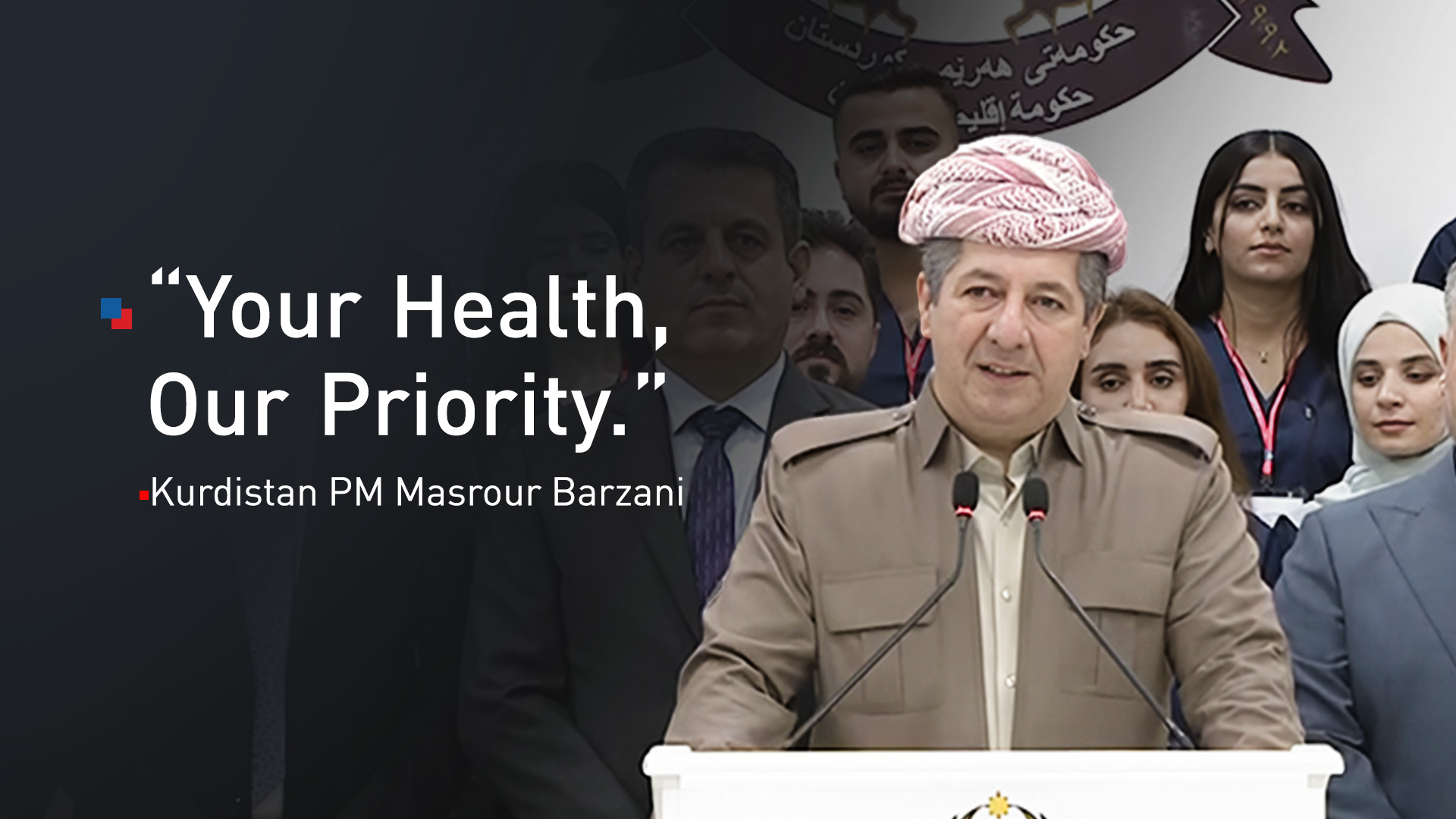Kurdistan PM Barzani Opens New ‘Shorsh-Hetit’ Hospital to Serve Local Communities
"I hope no one will need to visit the hospital. But if they do visit it, they will be in safe hands and under the best supervision from our doctors and nurses,” said PM Barzani during the official inauguration.

ERBIL (Kurdistan24) — Kurdistan Region Prime Minister Masrour Barzani officially inaugurated the Shorsh-Hetit Hospital on Wednesday at the Amadi border area, marking a major milestone in the KRG’s ongoing efforts to expand healthcare access in remote communities and provide modern, high-quality medical services to populations across the region.
Addressing the public during the event, Barzani congratulated the people of the region and all those who have long advocated for improved healthcare services, saying, “I extend my congratulations to the revolutionary people of this region and across Kurdistan on the opening of this hospital. I hope no one will need to visit the hospital. But if they do visit it, they will be in safe hands and under the best supervision from our doctors and nurses.”
The Prime Minister emphasized that after completing the hospital’s specialized departments, it is fully equipped and staffed with highly qualified medical personnel capable of delivering top-quality services to the community.
Barzani also highlighted that the establishment of the hospital responded directly to the pressing needs of the local population.
“By order of President Masoud Barzani, we aimed to provide enhanced healthcare services to this area. People have repeatedly requested a modern hospital, especially during the winter months when travel to other facilities in Duhok, Amadi, or Erbil was difficult due to snow. This hospital fulfills that vital need,” he said.
The Prime Minister underscored that the hospital’s opening reflects the government’s commitment to honoring the sacrifices of the local population, many of whom have endured hardships over the years, including the contributions of Kurdish revolutionaries from the region.
He added, “Now it is the responsibility of the government to provide them with the highest level of medical care and support.”
Layer in the day, Prime Minister Barzani posted on his official X account saying: "The new Shorash-Hetit Hospital will serve more than 250,000 citizens in the Amedi area. It has a 100-bed capacity with a $43 million investment."
"Despite all attempts to slow our progress, this is yet another promise we have delivered for our people," he wrote on X.
The new Shorash-Hetit Hospital will serve more than 250,000 citizens in the Amedi area. It has a 100-bed capacity with a $43 million investment.
— Masrour Barzani (@masrourbarzani) October 22, 2025
Despite all attempts to slow our progress, this is yet another promise we have delivered for our people. pic.twitter.com/m8fgRyyjQ7
The inauguration of Shorsh-Hetit Hospital marks a significant step forward in improving healthcare access in the region, bringing advanced medical services closer to communities that previously faced challenges reaching major hospitals.
The opening of Shorsh-Hetit Hospital is part of a broader strategy by the Kurdistan Regional Government (KRG) to expand and modernize healthcare services across the region.
Over the past decade, the KRG has invested heavily in building new hospitals, renovating existing facilities, and equipping them with advanced medical technologies to improve access to quality care for urban and rural populations alike.
The KRG’s health development plans emphasize decentralization of medical services to reduce the need for patients to travel long distances, particularly in remote and border areas.
By establishing hospitals like Shorsh-Hetit in strategic locations, the government aims to ensure that communities near the periphery of the region receive timely and efficient healthcare, especially during emergencies and harsh winter conditions.
In addition to physical infrastructure, the KRG has prioritized training and recruitment of highly skilled doctors, nurses, and healthcare professionals.
Partnerships with international medical institutions and investment in continuous professional development programs are key components of the government’s approach to maintaining high standards of patient care.
The regional government has also launched initiatives to integrate modern diagnostic and treatment technologies into its health network, including advanced imaging systems, intensive care units, and specialized departments for cardiology, oncology, and pediatric care.
These measures are designed to reduce reliance on hospitals outside the region and to make the Kurdistan Region more self-sufficient in meeting its healthcare needs.
Looking ahead, the KRG plans to expand its health services further through mobile clinics, telemedicine programs, and public health campaigns targeting prevention and early diagnosis.
These efforts are aligned with the broader goal of improving the overall health outcomes of the population while fostering equitable access to medical care across all districts of the Kurdistan Region.